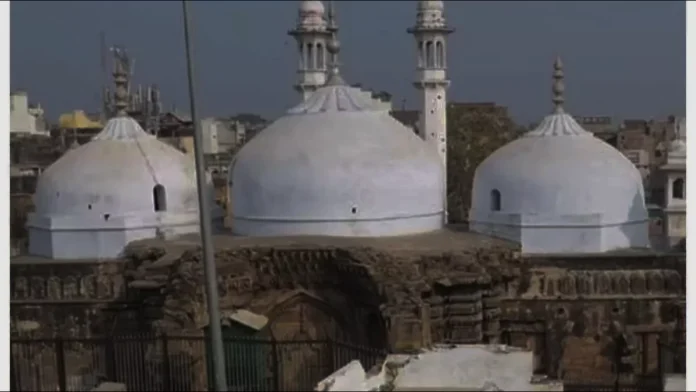Wed, Jan 31, 2024 In a significant development, the Varanasi district court has granted permission for the Hindu community to offer prayers at the ‘Vyas Ka Tekhana’ area inside the Gyanvapi mosque complex. Advocate Vishnu Shankar Jain, representing the Hindu side, announced, “…Puja will commence within seven days, and everyone will have the right to perform Puja.”
Vyas Ka Tekhana: A Long-Pending Request
The Gyanvapi mosque, located in Varanasi, houses four ‘tahkhanas’ (cellars) in the basement, one of which is still in possession of the Vyas family, the hereditary pujaris who used to reside there. The court decision comes as a result of a petition filed by Vyas, seeking permission to resume the pooja as the hereditary pujari.
Legal Standpoint: Orders and Challenges
Hindu side lawyer, Advocate Subhash Nandan Chaturvedi, expressed, “…Today, the right has been given to perform puja at ‘Vyas Ka Tekhana,’ and the court has ordered the District Officer to comply with the order within a week.” However, Anjuman Intezamia Masjid Committee’s counsel, Akhlaque Ahmad, stated that they would challenge the order in the higher court.
Parallel Developments: Allahabad High Court Notice
Simultaneously, the Allahabad High Court issued a notice to the Anjuman Intezamia Masjid Committee, which manages the Gyanvapi mosque. This notice pertains to a plea challenging a Varanasi court’s refusal to direct the Archaeological Survey of India (ASI) to conduct a survey of the ‘wazu khana’ area in the mosque complex.
Key Aspect: Wazu Khana Survey
The ‘wazu khana’ is an area where ablutions are performed before offering namaz. The plea filed before the Varanasi court emphasized the necessity of surveying this area to ascertain the religious character of the property. The district judge court had rejected the application in October 2023, citing a previous apex court order to protect the area where a ‘Shivling’ was claimed to be found.
This decision marks a significant development in the ongoing legal proceedings surrounding the Gyanvapi mosque, as various parties continue to assert their rights and challenge court rulings.
